Ecosystems
-
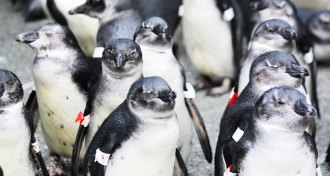 Animals
AnimalsYoung penguins follow false food cues
Juvenile African penguins are being trapped in barren habitats, led astray by biological cues that are no longer reliable because of human activity.
-
 Ecosystems
EcosystemsZika virus ‘spillback’ into primates raises risk of future human outbreaks
Spillback of Zika virus into monkeys may complicate eradication efforts.
-
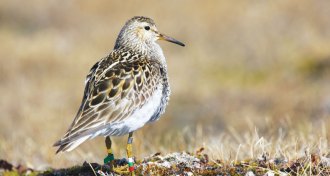 Animals
AnimalsPectoral sandpipers go the distance, and then some
Even after a long migration, male pectoral sandpipers keep flying, adding 3,000 extra kilometers on quest for mates.
-
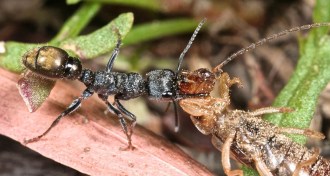 Animals
AnimalsDesert ants look to the sky, rely on memory to navigate backward
Desert ants appear to use a combination of visual memory and celestial cues to make it back to the nest walking butt-first, researchers find.
-
 Animals
AnimalsHow desert ants navigate walking backward
Desert ants appear to use a combination of visual memory and celestial cues to make it back to the nest walking butt-first, researchers find.
-
 Ecosystems
EcosystemsIn debate over origin of fairy circles, both sides might be right
Odd bare spots called fairy circles in African grasslands might be caused by both termites and plants.
By Susan Milius -
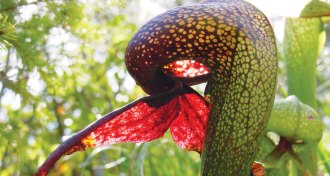 Plants
PlantsMeat-eating pitcher plants raise deathtraps to an art
The carnivorous California pitcher plant ensnares its dinner using a medley of techniques.
By Susan Milius -
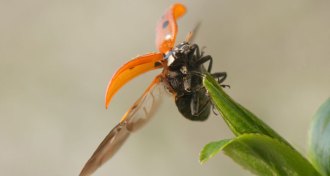 Ecosystems
EcosystemsLong-ignored, high-flying arthropods could make up largest land migrations
Forget birds. 3.5 trillion insects, spiders and mites a year fly over the southern United Kingdom.
By Susan Milius -
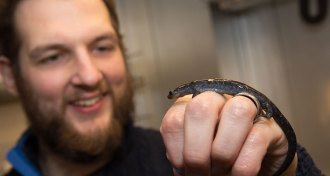 Animals
AnimalsFor some salamanders, finding a mate is a marathon
Small-mouthed salamanders will travel close to nine kilometers on average to mate, a new study finds.
-
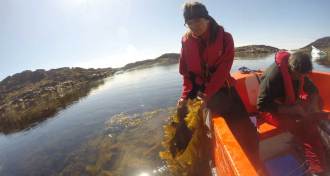 Climate
ClimateArctic kelp forests may create summer refuges from ocean acidification
Long summer daylight revs up carbon capture in Arctic kelp forests, offering a little relief from acidifying ocean water.
By Susan Milius -
 Ecosystems
EcosystemsOyster deaths linked to ‘atmospheric rivers’
Atmospheric rivers bring strong storms that could have been behind a 2011 California oyster die-off.
-
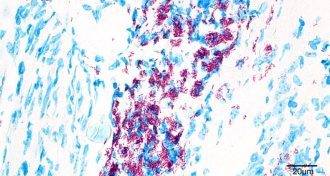 Ecosystems
EcosystemsLosing tropical forest might raise risks of human skin ulcers, deformed bones
Bacteria that cause Buruli ulcer in people flourish with tropical deforestation.
By Susan Milius